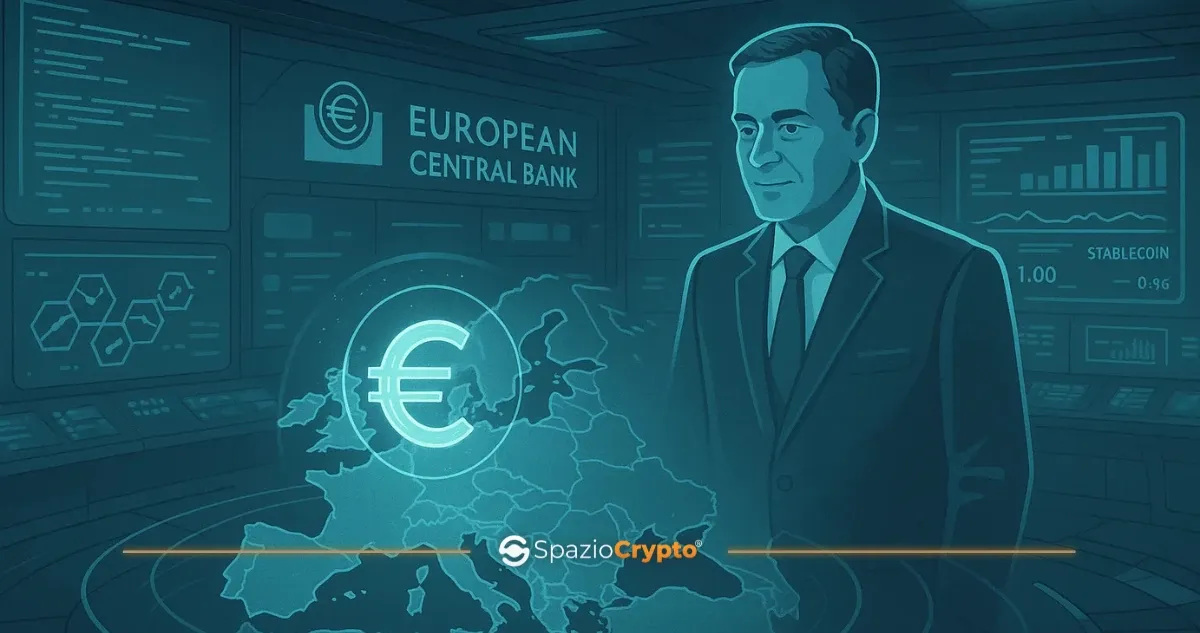The Governor of the Bank of Italy, Fabio Panetta, called for a more active implementation of the digital euro in his annual report, presented on 30 May 2025. He is convinced that the launch of a state digital currency is necessary to effectively control the risks posed by crypto assets. According to him, regulatory measures alone, in particular the MiCA (Markets in Crypto-Assets) framework, are not sufficient to fully protect the European financial system.
Panetta noted that although the MiCA rules came into force at the end of 2024, there are still few stablecoins linked to electronic money (EMT) on the market. Adoption of these assets remains limited and, in Italy, regulated companies and other market participants have shown little interest in releasing them. However, it has signalled a growing interest in storing and trading digital assets.
Digital euro, not MiCA, key to manage crypto risks: Bank of Italy chief
- Helen Partz (@coindanslecoin) May 30, 2025
MiCA has had a limited impact on the adoption of compliant stablecoins in Europe, strengthening the need for the digital euro, Bank of Italy governor Fabio Panetta said.https://t.co/IA2cayOIA0
She also emphasised that the digital euro could become not only a payment instrument, but also a key element for Europe's technological sovereignty. In an environment dominated by foreign cryptocurrencies and private stablecoins, having its own digital currency would strengthen the strategic autonomy of the region. It would also provide the central bank with effective tools to implement monetary policy in the digital economy.
The international context is also a cause for concern. According to Panetta, EU citizens risk being adversely affected if they use platforms and assets from jurisdictions with weak or non-transparent regulators. He points out that such differences in approaches to regulating the crypto market can pose a threat to the stability and security of users.
Panetta is convinced that the launch of the digital euro is necessary not only to reduce risks, but also to ensure the sustainability of the entire European payments system. He emphasised that only a currency issued by a central bank can guarantee full trust and reliability - unlike private cryptocurrencies, which are subject to market fluctuations and speculation.
In addition, he called on the European Union to take the lead in the global race to set standards for the regulation of crypto. According to the BoI chief, this is particularly relevant in light of the dominance of dollar stablecoins, which account for 97% of the total volume of stable tokens on the market.
Governor of the Bank of Italy: Regulators alone are not enough to manage risks
Panetta is not alone in this view - previously, Piero Cipollone, a member of the ECB Executive Board, had also spoken of the need for a digital euro in response to the rise of dollar stablecoins.
Consequently, the BoI made it clear that the digital euro is not just a technological innovation, but an important step to ensure transparency, stability and security in the new digital economy. Its implementation will help to protect European citizens from the volatility of crypto markets, strengthen control over money flows and provide a reliable infrastructure for future generations of users.








